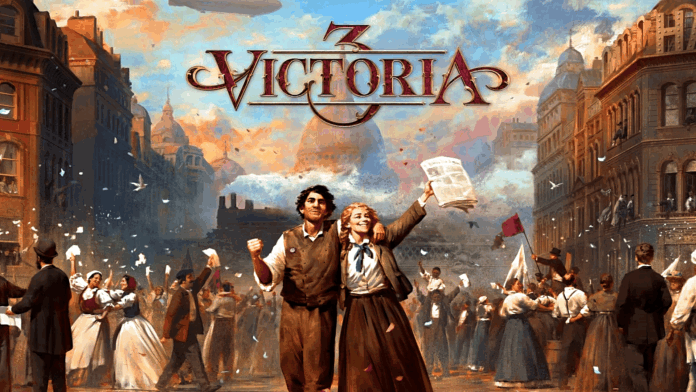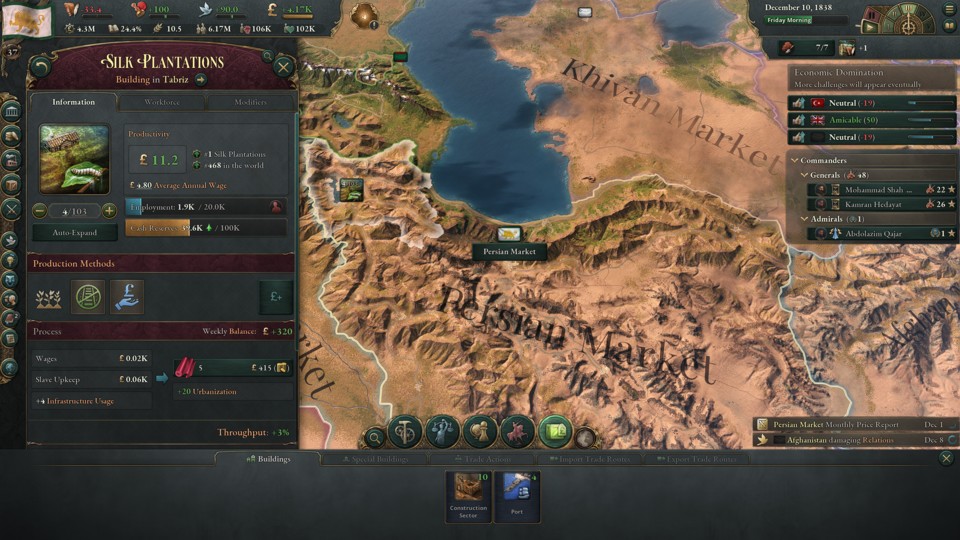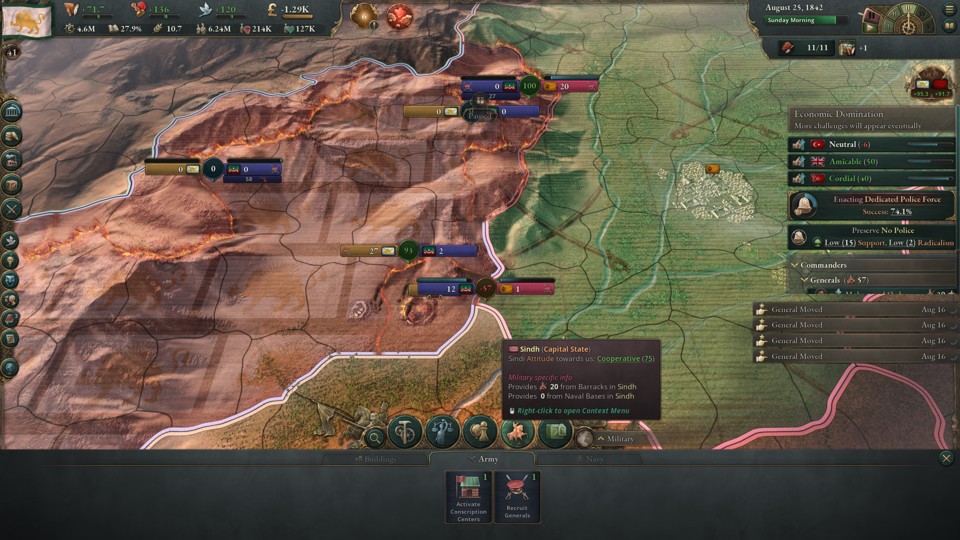author Kevin was able to talk to Martin Anward, Game Director of Victoria 3, at PDXCon about the special market niche Victoria 3 wants to place itself in. And by the way, he also learned a lot about possible post-release content.
The reason for this is quite simple: Victoria 3 will be different from all other games I know. Because so far there is no strategy game in which I have as much fun with politics, society and economy as I do here. So I hardly mind that the war mechanics are very rudimentary and boring.
At the Paradox in-house exhibition in Stockholm, I was able to gather more information about Victoria 3. Besides the usual Q&A panels, there was, for example, a very detailed talk about the in-game economy. Although this sounds very dull, the room was packed and the audience was spellbound – Paradox fans. In addition, I was able to play a little more Victoria 3 with Steinwallen and ask the developers questions about the trading system.
We are prepared for criticism
But the conversation with Martin Anward, the game director of the new title, was particularly interesting. He is well aware of the strengths and weaknesses of his game. When asked if they were prepared for criticism of their war system, he replied:
This is something we were prepared for from the beginning. (…) We know that it will be controversial in some ways. Because it is such a fundamental change from what we have been doing. (…) We have had a lot of reactions and we think that overall there are a lot of players who are really looking forward to it, but also players who are not looking forward to it at all. (…) But we won’t really know until release. I’m cautiously optimistic…but of course I believe in it, because otherwise I wouldn’t have implemented it into the game like that. So I would say yes and no.
And Wiz (that’s his name on the net) also answers my next question quite down to earth: Will sales and audience size keep up with Crusader Kings 3?
On the one hand, people think Victoria 3 is a much more niche game, that it will be harder to get into. So in that respect, if you look at it from the cold, rational perspective, it might not be as popular as Crusader Kings 3. Personally, I think this game serves a niche that hasn’t been filled so far. I think it offers a whole new gaming experience (…) and I think that will make up for the disadvantage. Whether we will be able to beat Crusader Kings 3, we will see. But it’s not like we’re actually competing with each other.
(We were promised that the AI in the current internal build is already much better than in the version we were allowed to play. For example, it should no longer happen that France simply swallows Great Britain.)
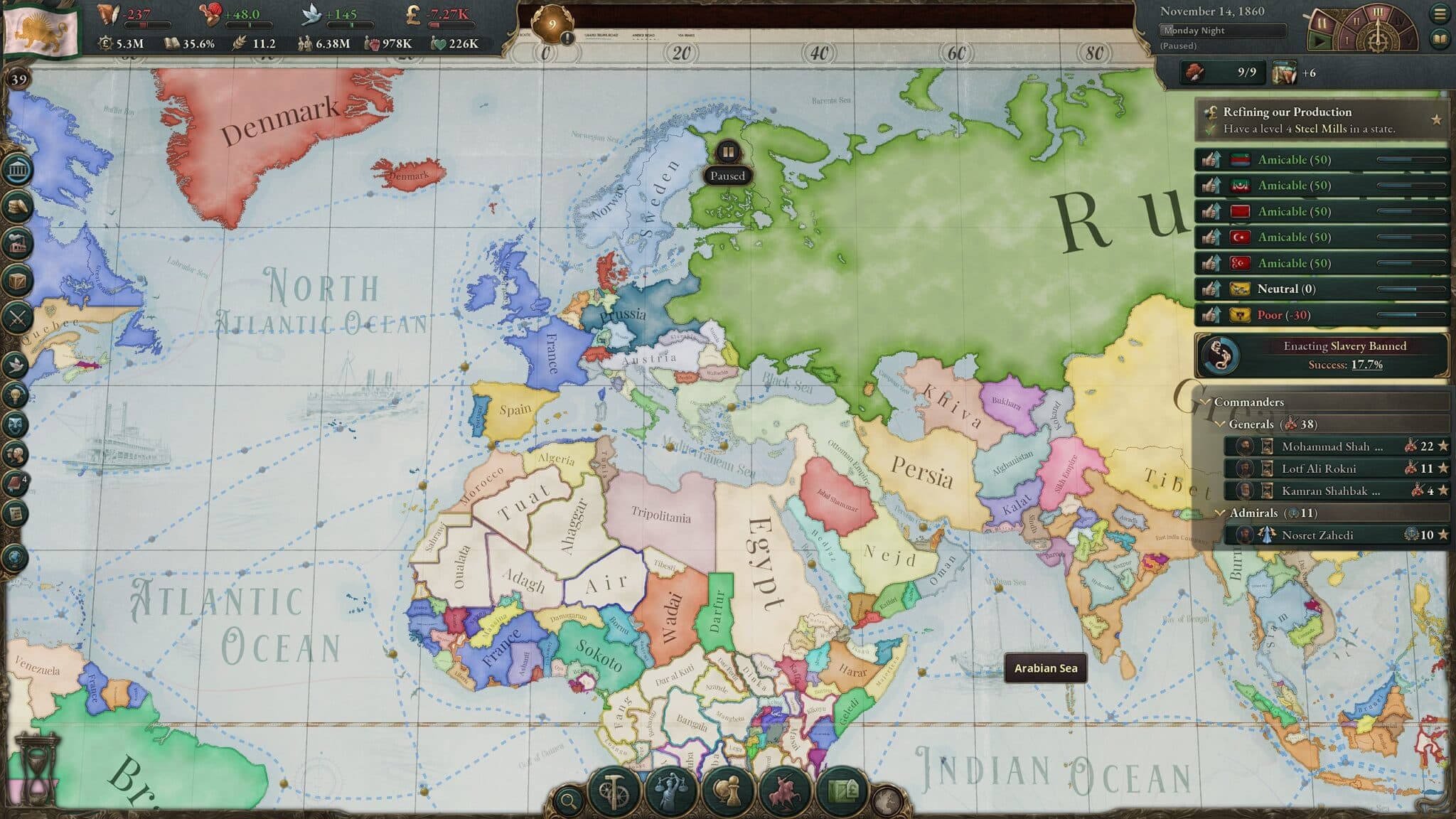
Of course the game director is biased about his own game. But I have to agree with him. I also believe that Victoria 3 will find its niche because it will indeed be a unique game. When someone asks me what I would compare it to, nothing comes to mind. And as I noticed while playing it myself, it really does develop its own fascination, war system or not. And since Paradox is aware of this, they want to continue to focus on the management part in their game.
About my interview partner: Martin Anward is currently the game director of Victoria 3. He originally came from the modding scene and, according to Paradox veteran Johan Andersson, even failed the programming test. But then they hired him anyway. After working as a leading developer on Europa Universalis 4 and then Stellaris, he is now in charge of the Swedes’ current prestige project.

Translation, multiplayer and better AI for release
Next, I asked some questions that Dani and I had been wondering about in the preview version. So now we know that you can definitely continue playing after 1936 if you want to. As in all Paradox titles, the balance will gradually get out of control after the end date and no new technologies will be available, but it is possible.
The multiplayer is based on the same framework as Crusader Kings 3, so it works the same way and should run similarly stable (compared to older titles such as Europa Universalis 4). The AI is not supposed to differentiate between humans and AIs in multiplayer, but it is supposed to notice when two nations cooperate strongly. However, Anward also made it clear that the AI cannot easily hold its own against the cooperative play of several human players.
For the release, the game director promised a better AI for combat and diplomacy than in the preview build we received. For example, it should be a thing of the past that France constantly swallows Great Britain. In addition, there will be more tooltips and comparison menus to compare one’s own country with others in terms of prestige, gross domestic product and technologies. He did not want to promise whether a real statistics menu with pages and pages of numbers and lists would come, he would rather see the information organically built into the game.
World War I, fleets and German Confederation after release
Of course, the developers already have plans for the time after release and even though Anward didn’t want to commit to anything, he agreed on some suggestions energetically enough to be able to assume that said content will come sooner or later.
For example, the game director definitely wants to include a First World War mechanic, which is still completely missing. He envisions a huge “diplomatic play”, which, of course, does not always have to start with Serbia and does not always have to involve exactly the same nations.
He can also imagine more content in the area of fleets. After all, the 19th century was a time of fleet competition and national ostentation. In this respect, we will probably get more possibilities and unique ship types at some point. Whether this could even be in the form of a ship designer like in Hearts of Iron 4, he did not want to say, but he did say:
Possible! I won’t promise it, but I wouldn’t really rule it out either.
Also on the list are ways to influence other nations with money, for example to bring about political change in a neighbouring country that I like by funding certain groups.
And speaking of change: Without having asked for it, Anward also promised me a special mechanic for the German Confederation. Furthermore, more possibilities for interaction with subordinate states will come and in all likelihood the war system will also see an improvement or two.
The DLC Policy
In terms of the structure of the DLCs, we can expect the same system as in Crusader Kings 3. Larger expansions will alternate with immersion packs. However, these can also be a bit more abstract in Victoria 3. Instead of focusing on geographical areas, there will also be something like a “Socialist Revolution” immersion pack, which will be about a specific theme rather than countries.
But there will also be such geographically focused expansions, South America was mentioned as an example as one of the areas that would lend themselves to custom content. And new music tracks and graphic content will also be a regular part of the expansions.
Will it work in Texas? And does it work in China?
Last but not least, to return to the claim made at the beginning that Victoria 3 will be a unique game, I have two anecdotes for you.
Firstly, in conversation with some of the developers, it became clear that Paradox also has an eye on ensuring that both large and small nations play satisfactorily. Accordingly, one development maxim was, “Does mechanic xy work in Texas (population 15,000) and does it work in China (population 300 million)?”
Anward promises that both small countries with few but important choices and large countries with a wealth of possibilities and options will be fun to play. A statement that Kevin soweit can confirm, having played first Baden and then the German Empire in his playing days and having a lot of fun with both.
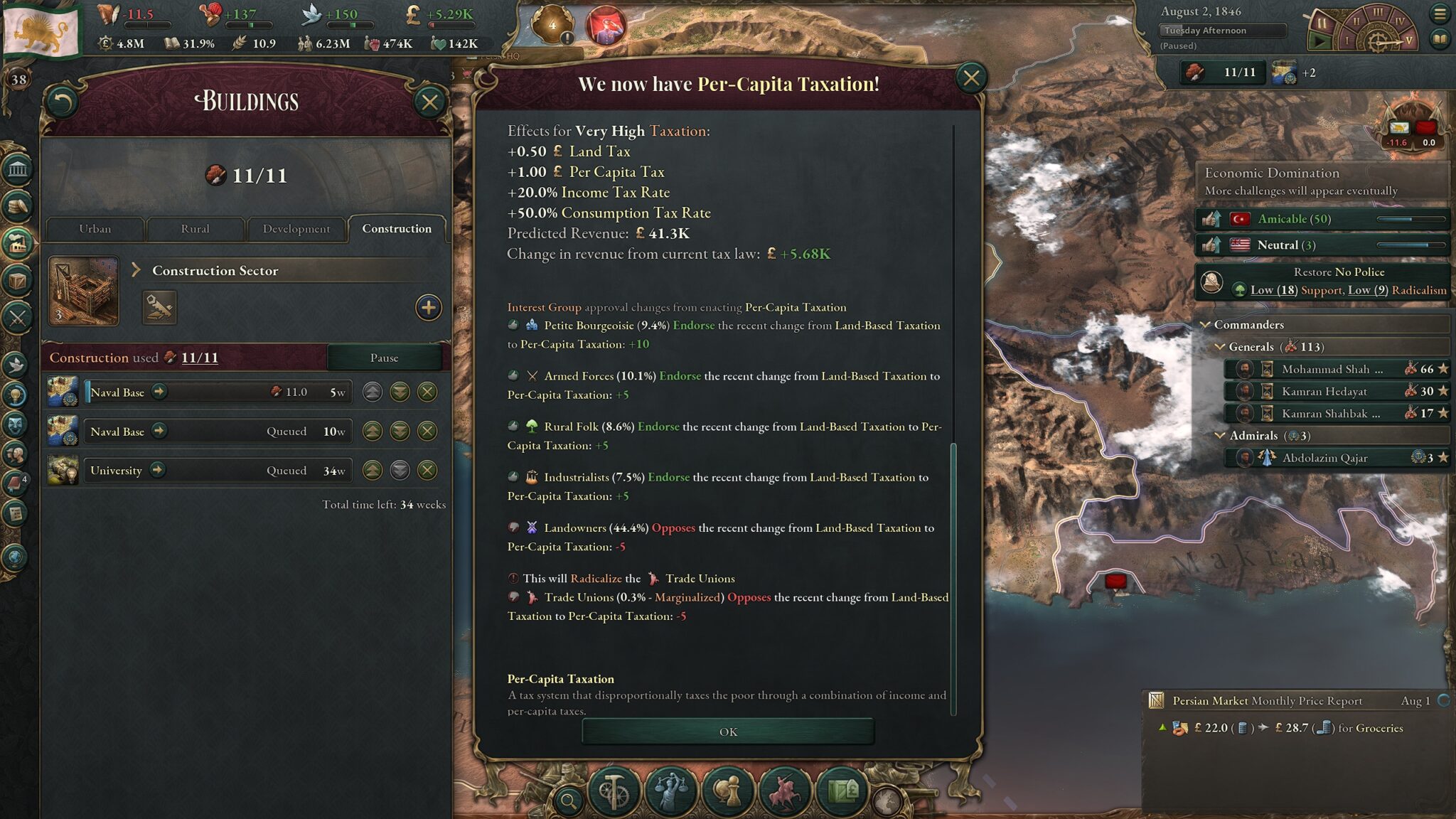
For another thing, during PDXCon I was looking over the shoulder of Youtuber Steinwallen for a while until we came across a problem with the export of coal from Prussia to the UK. Although Steinwallen was trying to make his steel mills in Prussia more economical by expanding coal mines in Silesia, the price of the fuel was actually going up!
After some checking on our part, it turned out that Britain was buying much of the coal out of the Prussian market, which he could do nothing about directly (except a full embargo). Steinwallen now reacted by setting up his own trade route and bringing back coal from Britain, because the price there was significantly lower than in Prussia (Britain also produced its own, very cheap coal).
Although this was problematic from an immersion point of view (the coal is shipped to England and then directly back again), it initially led to an equalisation of prices, as we had hoped. But then prices rose in both countries. We brought in an expert from the development team who, after a lot of research, told us that the UK was subsidising its trading ports like a fool to get coal into the country by hook or by crook.
Na neat, so we had a tangible trade war on our hands that arose organically out of the simulation. While the developer said that the AI should actually abandon this strategy at some point when the price goes horrendously up, either way it already showed how extensive the simulation is in what they say is the most complex game they’ve ever made.
Editor’s Verdict
There should be no doubt that Victoria 3 will still have one or two quirks upon release. The economic system alone is so complex that I can’t imagine the developers really getting every problem solved by 25 October. Nevertheless, I’m really looking forward to this game and my conversations with the developers and other players have only strengthened my anticipation. Because really, there hasn’t been a game like this yet.
Especially for those who don’t always want to fight wars anyway, but prefer to develop and build their nations, even in Crusader Kings 3 or Hearts of Iron 4, Victoria 3 should be the perfect game. And although the simulation is complex, the basic controls of the game are not that complicated. I would argue that it is even easier to get into Victoria 3 than Crusader Kings 3, in which the whole inheritance system still sometimes gives me a headache. It’s the details that drive you crazy in this new global strategy game. The way everything interlocks here is beyond belief.
I particularly like the fact that I can easily look for goals away from warfare. The life standard value can be increased almost infinitely and so even late in the game I have a carrot in front of my nose, quite unlike in Crusader Kings 3, for example, in which I am hopelessly too strong sooner or later. And when I hear what else might be in store for us in the future…then I really can’t wait for the release.

